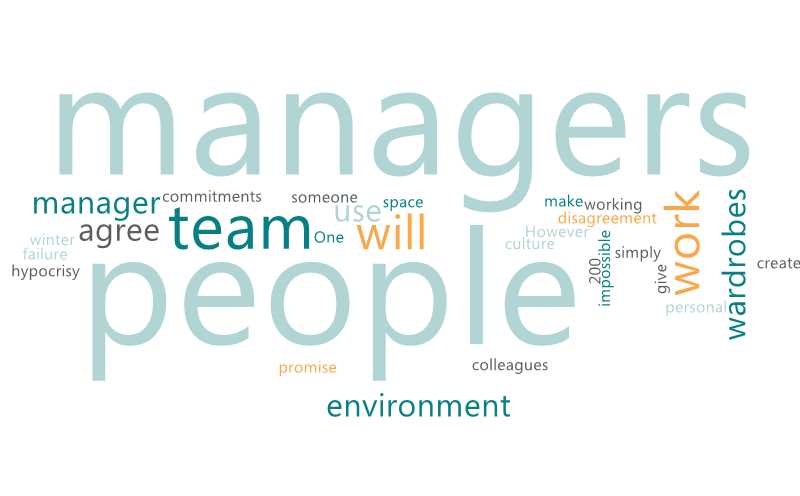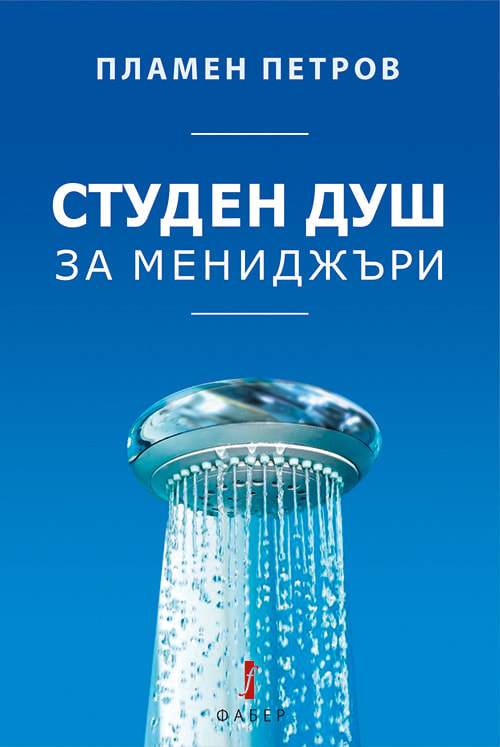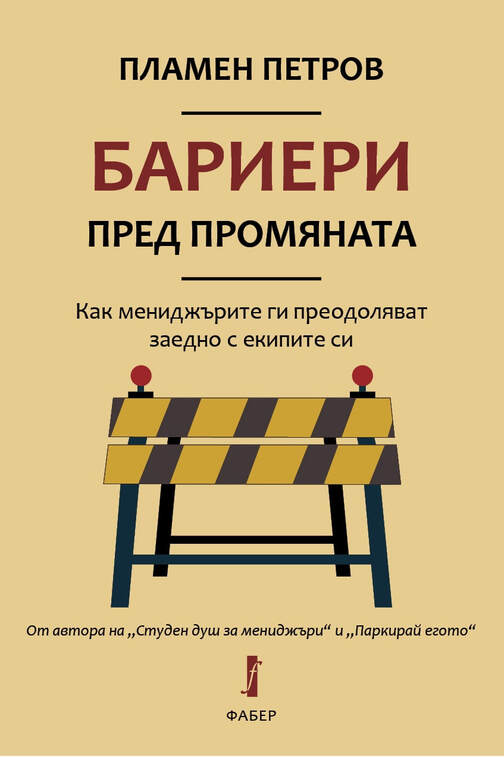|
"Never prefer your personal stupidity to someone else's useful advice." Socrates There is a phrase that illustrates a formal agreement, but also an actual disagreement in the team communication. I call it "dirty yes." Managers who chronically get such a "dirty yes" in their teams and wonder what is the reason for it, do not need to blame other people, but simply to look in the mirror. One of the first reasons for this "dirty yes" to be so widespread is that the managers themselves give such a "dirty yes" to their teams. They promise resources they cannot provide. They guarantee rewards for which they have no authority. And finally, they make commitments to their managers to impossible goals… and then unsuccessfully impose them on their teams. Let us use a specific example. Imagine working with about 200 other people on one floor in an open space environment. At the beginning of winter, you decide with other managers to introduce a policy in which people must leave their coats in the wardrobes at the entrance. The purpose of this is to create a comfortable working environment for all 200 people - not to turn work chairs into sources of any odors, not to have piles of scarves, hats, and any other winter accessories. All managers in the meeting agree with the rule and promise to introduce it on the same day. However, some managers, who are far from the entrance and the wardrobes, know that their teams will resist the rule and will probably not follow it. During the meeting, the managers give their "dirty yes" to all other managers. They agree because they do not want to admit that they cannot ensure the implementation of the rule, but, they do not ask for an exception for their teams or the provision of additional wardrobes to make compliance more practical and probable. At some point, the large accumulation of such "dirty yes" can create an environment in which people have the feeling that they are constantly swimming in a river of hypocrisy. But in any team, hypocrisy cannot last long without the "help" of the manager of that team - with his actions or inactions. There are two main types of "dirty yes": - In good faith - people use it purposefully to achieve a better goal for their teams. - Malicious - people use it when they deliberately sabotage their colleagues or managers because they know that their mini-failure will be an even greater failure for someone else they want to harm. Naturally, the team is always a reflection of its manager - almost every manager has said "dirty yes" with the best of intentions, which, however, have manifested themselves in negative affects on the team. The antidote to this "dirty yes" is full transparency and the creation of a safe psychological space for people to express thoughtful disagreement - n all directions of the organizational chart. Especially in the northern direction. This "dirty yes" can be part of the corporate culture in places where people are more diplomatic, often agree, and rarely fulfill their commitments. Here, this phenomenon is just part of the unwritten rules, but everyone knows them and organizes their work according to them. Then the drama is not that bad. It is more complicated when this "dirty yes" is not part of the company, but it is a part of the personal professional culture of managers. In these cases, people who have to work with such colleagues will go through a period of adaptation and finding an appropriate approach to work. It is important in this case that managers are not tempted to "fix" others and try to change them. Simply because it is impossible. The right strategy here is to manage the agreements with these people more precisely and on a more frequent basis so that the presence of "dirty yes" becomes visible in time and from there a way can be found to deal with it.
0 Comments
Leave a Reply. |
Архиви
July 2024
|
__________________________________________
Copyright © 2011-2024, Equinox Partners Ltd. All rights reserved.
Copyright © 2011-2024, Equinox Partners Ltd. All rights reserved.


 RSS Feed
RSS Feed


